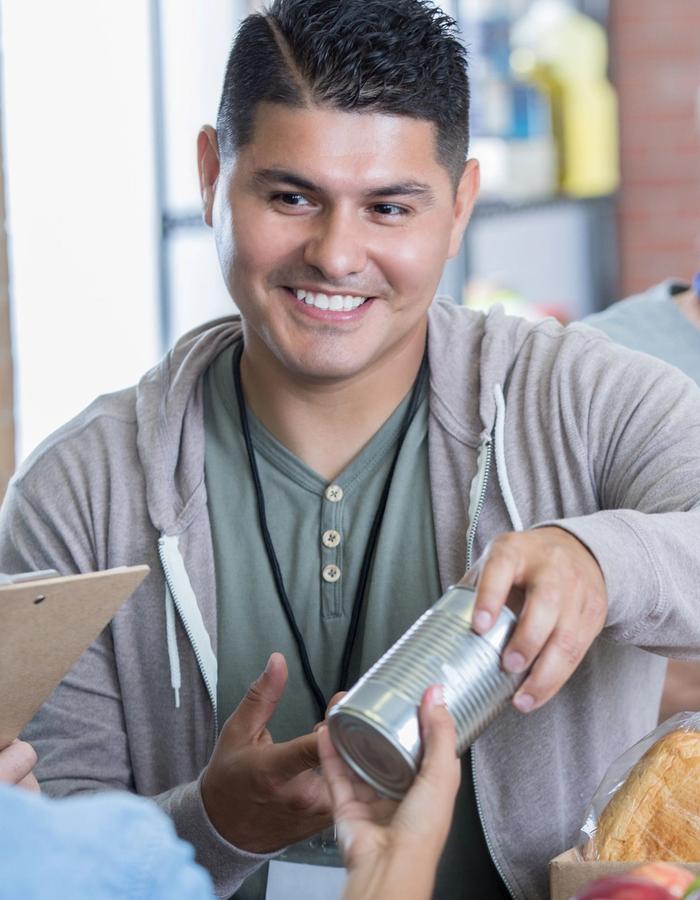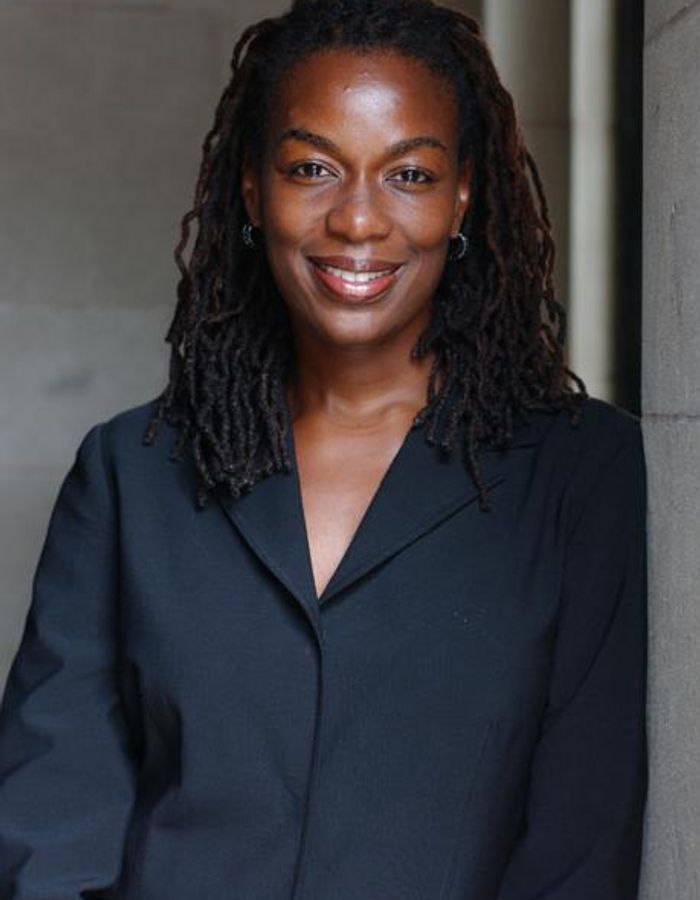BRIDGE Insights – The link between confidence in digital skills and survival during COVID-19
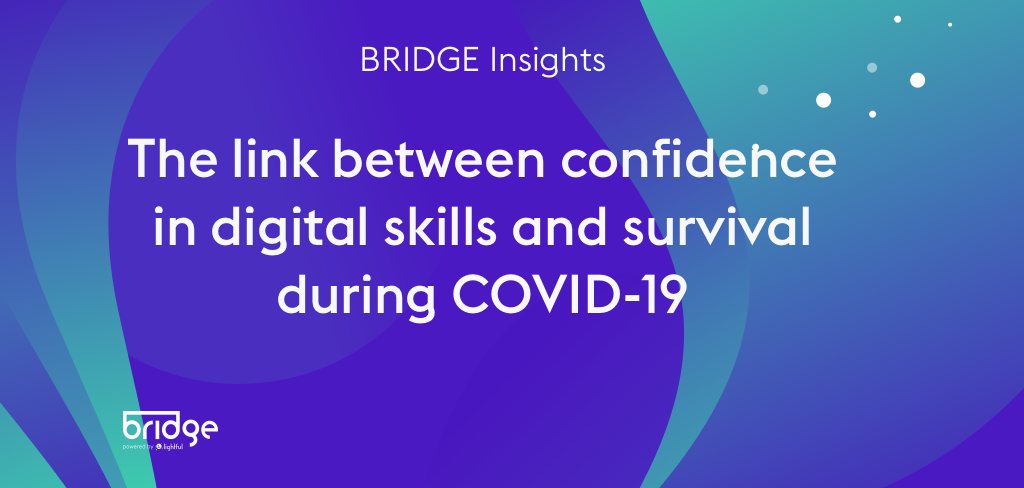
It’s more important than ever to be more digital. We’re also aware though that many organisations do not have the capacity or the resources to improve their digital skills. Small charities may still be at the very beginning of their digital journey and it’s vital to help them as much as possible.
As part of our BRIDGE programme, we’ve launched a survey for our latest cohort’s 555 applicants to find out more about their level of confidence for survival during COVID-19 and how it’s linked with their digital skills.
On our previous blogs, we’ve looked at the stats that prove the need to be more digital, but also the concerns and opportunities that come out of the current crisis.
The focus of this blog is an important question. What’s the link between the confidence in digital skills and survival during COVID-19?
Measuring the level of confidence for survival during COVID-19
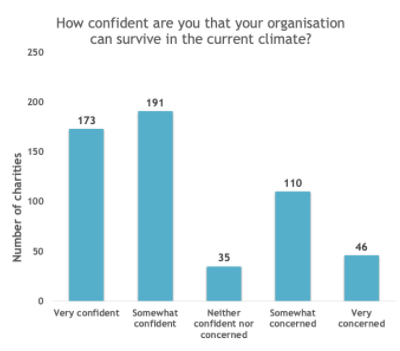
We’ve talked on previous blogs about the need to be more digital in an attempt to survive as an organisation during COVID-19.
That’s why we’ve asked the BRIDGE applicants to self-report their confidence and concerns about their digital skills.
66% of all applicants reported to be somewhat/very confident that their organisation can survive the current climate.
The results are related to the opportunities we’ve explored that came out of the pandemic for many organisations:
- Greater visibility due to Covid-19
- Loyal donors/funders
- Ready/Able to adjust to online operations
- Shift in fundraising strategy
- Established charity/Survived many crises before
- Reserve funds
- Solid fundraising team
- Strong online presence
In other words, despite the challenging times, many charities remain confident that their vital work and their adjusted strategy can help them survive the pandemic. This is very encouraging and it can be useful for more charities working on their impact and how they can measure their success over the next months to continue their work.
Linking digital skills with the confidence of survival during COVID-19
We also wanted to find out where our BRIDGE applicants stand in terms of digital skills and what they need to improve on.
52% of applicants don’t have a digital strategy in place
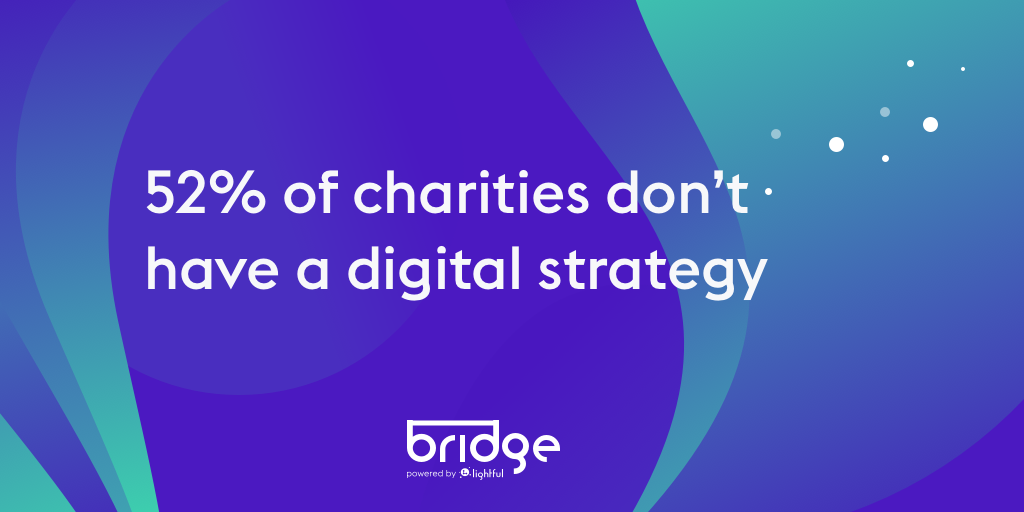
This statistic is in line with the benchmark from the Charity Digital Skills Report (2020) where 51% of charities don’t have a digital strategy yet.
From the 555 applicants, only 2% were reported to be struggling with the digital basics while 13% of them are set up in the digital basics, such as having a social media presence.
Only 2% of applicants are struggling with digital basics
As digital disruption takes place during the pandemic, it’s important to know your starting point so that you use it as your benchmark for the next steps. Even if you don’t have a digital strategy in place, it’s never too late to improve your digital footprint.
Having a digital strategy increased the confidence in digital engagement skills
A digital strategy can help your organisation have a plan in place on the steps you need to follow to achieve your objectives. It’s encouraging to see the correlation between having a digital strategy and increasing your confidence in digital skills.
57% of all respondents were confident in their digital engagement skills
Charities that have a digital strategy were more confident in their digital engagement skills
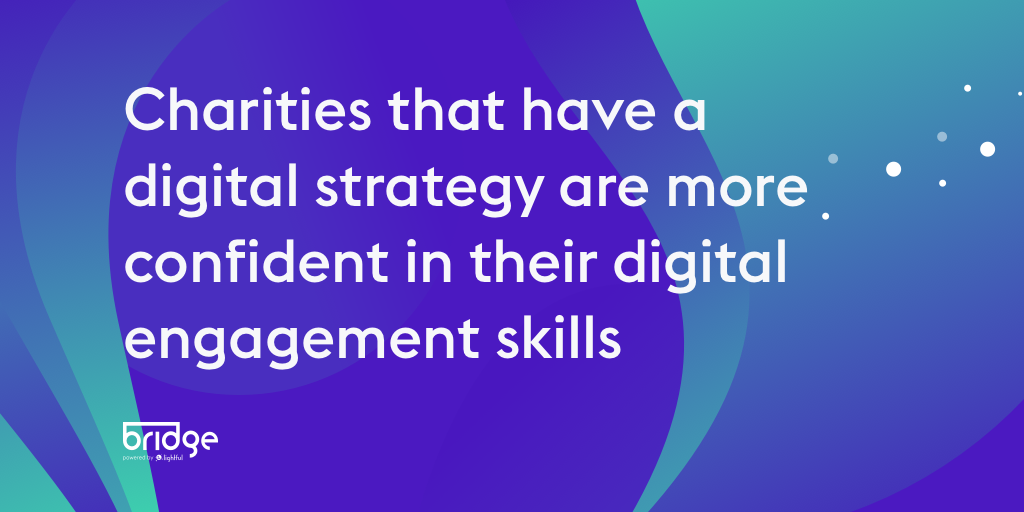
Having a digital strategy allows you to feel more confident about your set plan and how to reach the next milestones. It is proving that you understand the power of digital tools to support your organisation and that you are ready to be more strategic about them.
Improving the fundraising strategy is the main priority
We’ve asked charities to pick their priorities when it comes to building digital skills to support them the best way that we can with the BRIDGE programme.
42% of charities want to learn how to improve their fundraising strategy
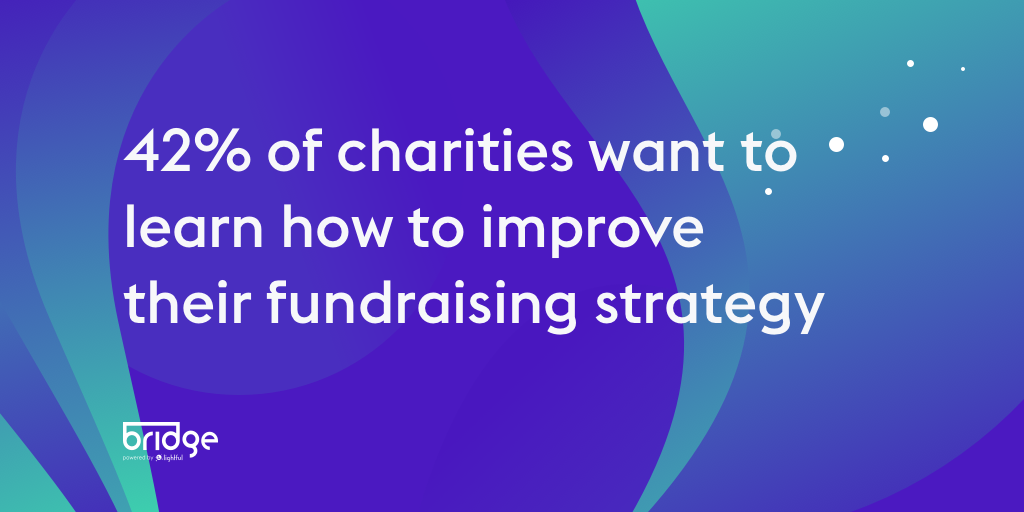
It’s reasonable for many charities to seek for new ways to improve their fundraising strategy to ensure they stay relevant with their emergency appeals. Whether you’re an expert or just getting started, improving your skills around digital fundraising and learning from others can help you maintain your success in the long run.
Other popular options on digital skill-building were:
– increasing audience reach (23%)
– increasing efficiency with digital tools (10%)
Listening to the charity’s needs
The first step towards providing a successful capacity building programme is to listen to the charity sector and what they really need from you.
As we’re in conversations with many foundations that are looking for new ways to support charities, it’s important to focus on the data to shape all current and future decisions.
Don’t miss our next blog for a closer look at what charities need the most right now in terms of digital support in the context of COVID-19.
Latest articles

In a world of growing uncertainty, small and local non-profit organisations often find themselves with competing priorities and struggle to plan how to allocate their available resources. Despite the increasing demand for their vital work, they are not always able to allocate the funds they receive to strategic planning and future growth.
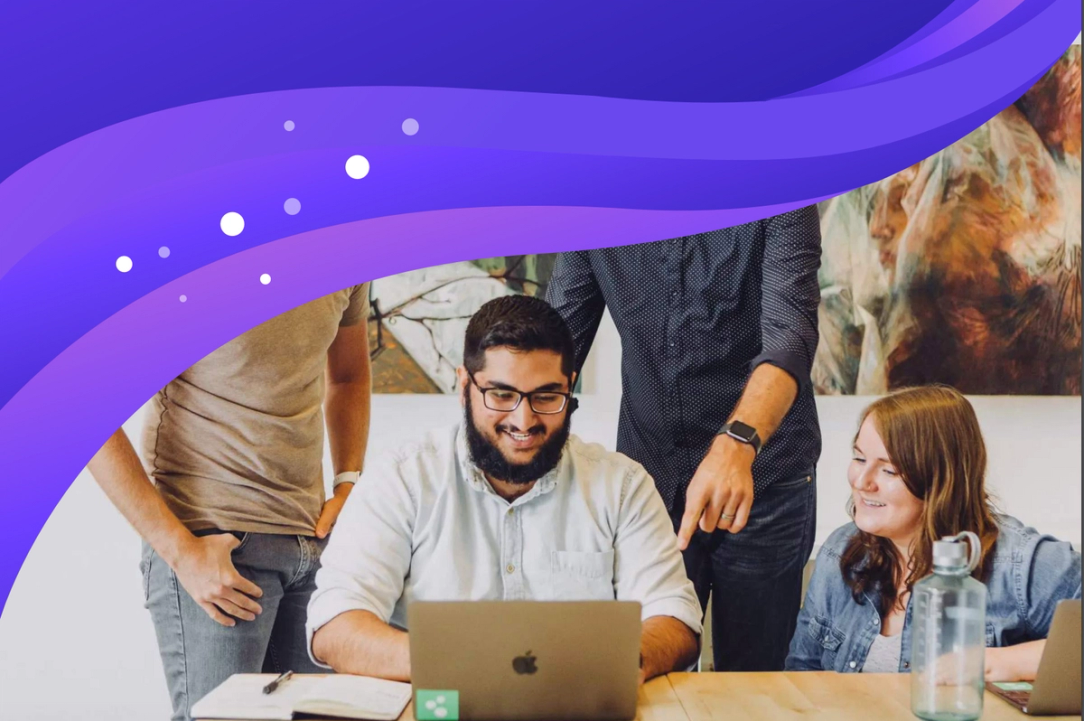
As the world becomes more digitally-focused, it’s essential for nonprofits to have a digital presence. With more and more options for online engagement, we know that this can be challenging for nonprofits to tackle. But, we also know that it is a huge opportunity to increase audience engagement, awareness and fundraising. To help nonprofits navigate this, we’re going to explore the “whys” and “hows” of creating a nonprofit digital strategy. We’re even providing a free digital strategy canvas to help nonprofits improve their online presence in just a few steps.
Related posts
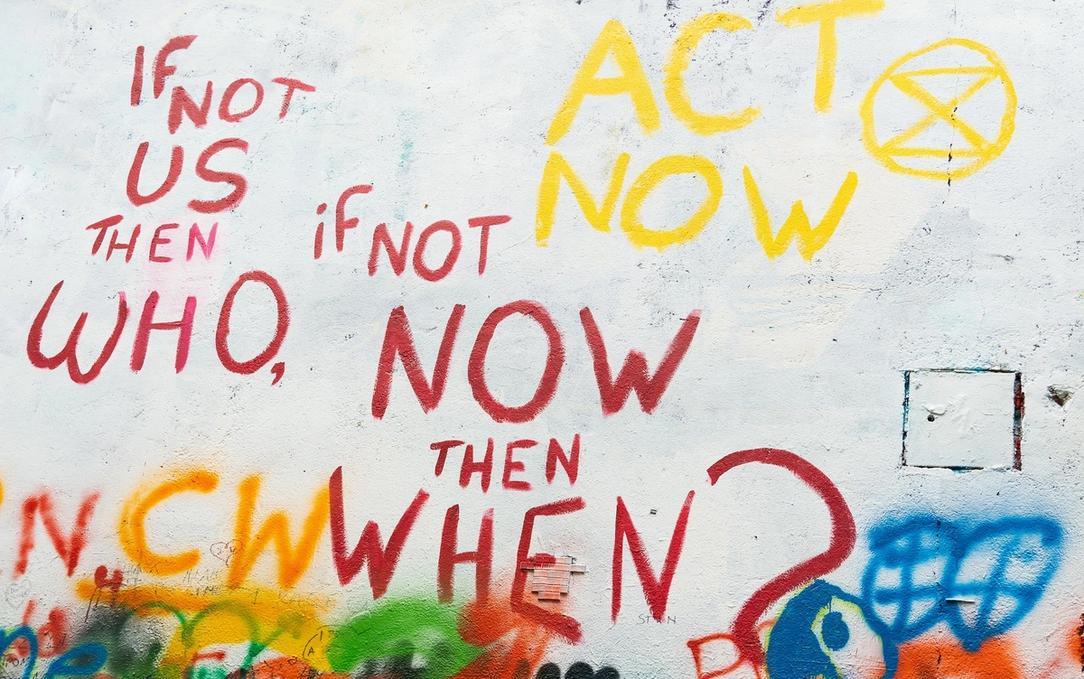
Environmental organisations around the world are working hard to tackle climate change, often with limited resources. What’s the role of digital communications in this battle and what support do they need?
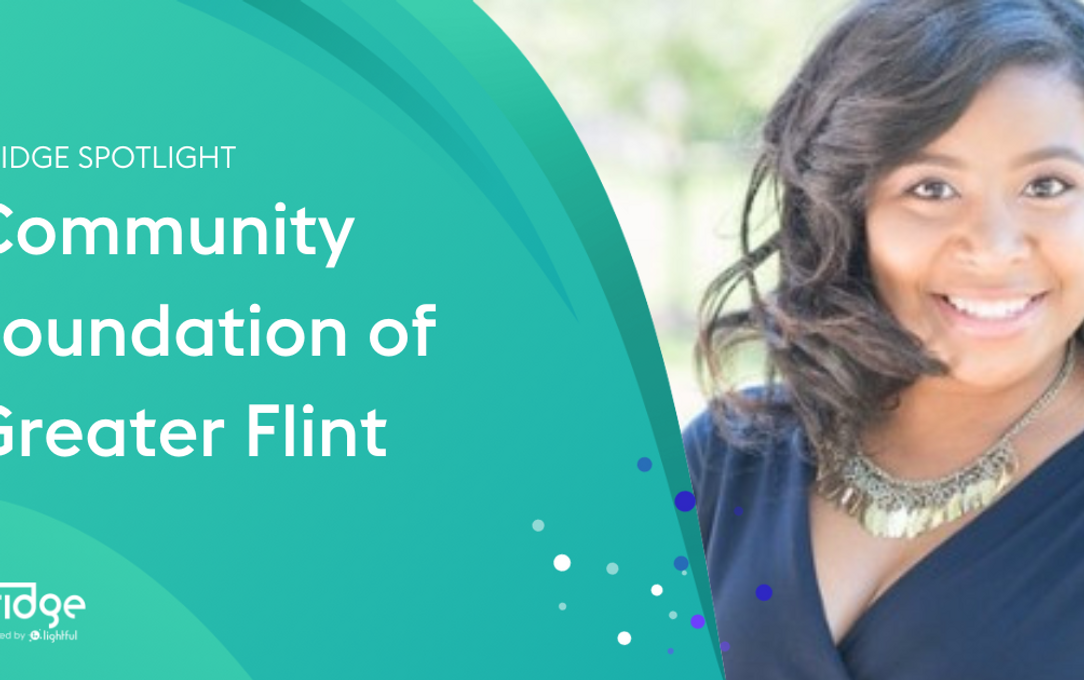
We talked to Chakara Wheeler from the Community Foundation of Greater Flint to find out more about her work and her experience being part of the BRIDGE programme.
See who we help
Contact us
Want to learn more?
Email Jonathan and start a conversation


